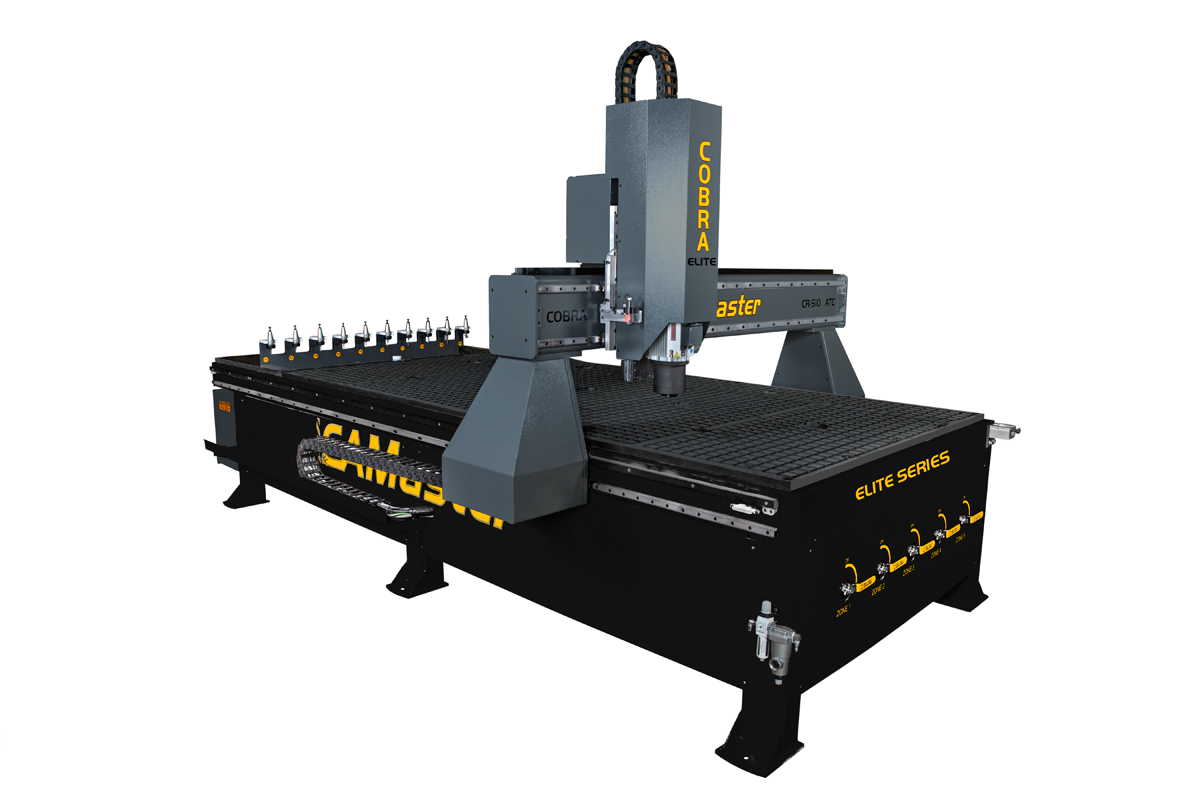When to Use a CNC Router vs When to Use a Laser Cutter
When it comes to cutting and shaping materials with accuracy, CNC routers and laser cutters are two top choices in modern fabrication and manufacturing. Each tool has its strengths and is best suited for different tasks. Knowing when to use a CNC router versus a laser cutter can make a big difference in the quality and efficiency of your projects. This guide will break down the advantages of each tool and help you decide which one is right for your needs.
What is a CNC Router?
A CNC (Computer Numerical Control) router is a handy tool used to cut, carve, and shape various materials like wood, plastic, and metal. It works by using a rotating spindle that moves along different directions, following digital designs to make precise cuts. These routers are great for working with large sheets of material and can create intricate shapes with impressive accuracy.
Advantages of CNC Routers
- Versatility: CNC routers can cut through a variety of materials, including wood, acrylic, and aluminum.
- Large Work Area: They are ideal for large projects due to their extensive work surface.
- Complex Cuts: Capable of performing intricate cuts and 3D carving.
Ideal Uses for CNC Routers
- Woodworking: Perfect for creating detailed wood carvings, furniture, and cabinetry.
- Sign Making: Suitable for crafting large signs and custom graphics.
- Prototyping: Useful for creating prototypes and models with complex geometries.
What is a Laser Cutter?
A laser cutter uses a focused laser beam to cut or engrave materials with extreme precision. The laser melts or vaporizes the material in a controlled manner, allowing for fine details and smooth edges. Laser cutters can work with various materials, including wood, acrylic, paper, and some metals.
Advantages of Laser Cutters
- Precision: Laser cutters provide exceptionally accurate cuts and fine details.
- Clean Cuts: Produces smooth, polished edges without the need for additional finishing.
- Minimal Waste: The laser’s precision reduces material waste, making it efficient for detailed designs.
Ideal Uses for Laser Cutters
- Detailed Engraving: Ideal for intricate designs and fine patterns on materials like wood, acrylic, and paper.
- Small Parts: Excellent for cutting small, precise components and prototypes.
- Customization: Perfect for personalized items, such as engraved gifts and custom signs.
CNC Router vs Laser Cutter: Key Differences
Cutting Technique
CNC Router: Utilizes a spinning bit to cut through materials. This method is effective for larger and thicker materials but can produce more material waste.
Laser Cutter: Employs a focused laser beam that precisely melts or vaporizes the material. This technique is excellent for fine details and thin materials with minimal waste.
Material Compatibility
CNC Router: Can handle a broader range of materials, including thicker woods and metals. It is particularly effective for materials that require substantial cutting depth.
Laser Cutter: Works best with thinner materials, such as paper, cardboard, and acrylic. While some laser cutters can cut thin metals, they are not suitable for thicker or denser materials.
Precision and Detail
CNC Router: Offers high precision but may not achieve the fine details possible with a laser cutter. It is better suited for creating larger or more complex shapes.
Laser Cutter: Provides superior detail and accuracy, making it ideal for intricate designs and small components.
Production Speed
CNC Router: Generally slower than laser cutters for fine details due to the mechanical movement and tool changes required.
Laser Cutter: Often faster for detailed and complex cuts, as it does not require physical contact with the material and can operate continuously.
Choosing the Right Tool for Your Project
When deciding between a CNC router and a laser cutter, consider the following factors:
- Material Type and Thickness: If you are working with thick or dense materials, a CNC router is likely the better choice. For thin, delicate materials or intricate designs, a laser cutter is more suitable.
- Project Size and Complexity: For large-scale projects or those requiring 3D carving, a CNC router is ideal. For detailed and small-scale cuts, a laser cutter excels.
- Production Volume: If you need to produce multiple items quickly with precise details, a laser cutter may offer faster turnaround times. For bulkier items or prototypes, a CNC router might be more appropriate.
Conclusion
Both CNC routers and laser cutters are invaluable tools in the world of fabrication and manufacturing. By understanding their unique capabilities and applications, you can choose the right technology for your specific needs. Whether you require the versatility and power of a CNC router or the precision and detail of a laser cutter, selecting the appropriate tool will enhance the quality and efficiency of your projects.
Want to upgrade your CNC workflow?
Discover our industrial-grade CNC solutions tailored to your needs. Learn more →
















